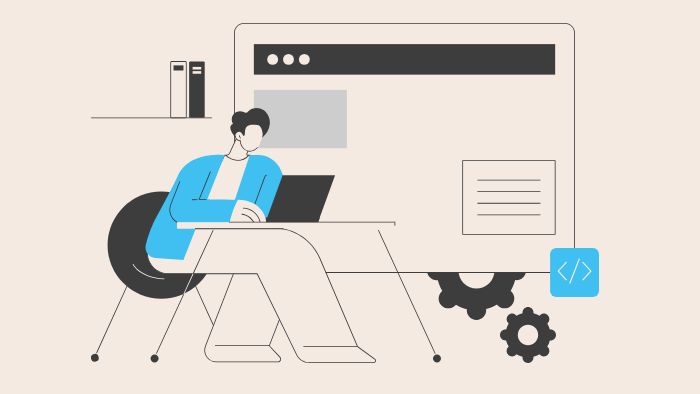Is your website, web application, software, mobile app, or digital product accessible for users with disabilities? How would you find out? As a digital agency, Blue Frontier can offer to perform an accessibility audit on your product. In this blog, we will explore the importance of accessibility audits and how we perform an audit. We will also explain what steps we can do after the audit.
What is an accessibility audit?
The purpose of an accessibility audit is to evaluate the accessibility of the design and structure of any website, web application, software, mobile app, or digital product to determine if the product is accessible to all users. These users include those with disabilities such as low vision, hearing impairments, dexterity, and cognitive issues. It is also used to determine the level of compliance with standards and guidelines for accessibility, such as Web Content Accessibility Guidelines (WCAG).
This will, in turn, help identify any potential barriers users with disabilities may encounter. The result of the audit will also help define any recommendations on how to improve the accessibility of your product. Even if the product starts off accessible, when changes to content or new functionality is added, the accessibility level may significantly alter. It is recommended that audits are performed on a regular basis or after a major update.
Ensuring a product is accessible is more of a moral obligation than a legal requirement. Meeting certain levels of compliance (i.e., WCAG 2.1 AA) will ensure that all users of any ability have equal access to a digital product. However, some organisations (i.e., public sector) do need to comply with accessibility laws and regulations.

How is an accessibility audit performed?
As WCAG level AA is the most common widely recognised set of guidelines, Blue Frontier performs the accessibility audit against these criteria. The steps performed during an audit are as follows:
- Scope of the audit is defined ensuring which pages, features, and functionality are to be audited, depending on the complexity and size of the product.
- Identify which tools and methods are to be used, such as manual testing and/or automation, screen reader, and platforms (mobile devices and desktop).
- Review the code, design, and structure of the product to ensure use of appropriate colour, font size, colour contrast ratios, use of text alternatives for non-text content (i.e., images and videos). Also verify layout flows in a logical and meaningful manner.
- Test the product using assistive technology such as screen readers and keyboard only.
- Evaluate the results, identify where the potential issues are for various type of users, and prioritise which issues need to be addressed.
- Create an accessibility report which will summarise the results of the audit.
Accessibility report
So, what will an audit report identify? The report produced would contain the following:
- Overview of the audit including the scope, methods used, and purpose of the report.
- Indication of how compliant the product is against the WCAG 2.1 AA guidelines.
- Breakdown of findings against each individual guideline, including how the issues impact users.
- Provision of any actions that would help improve the product, and the potential benefits.
- Conclusion, which summarises the key findings and recommended improvements.
The audit report is then passed over to the appropriate stakeholders (i.e., Blue Frontier staff) and to the client. The result of the audit can also be used to generate an accessibility statement that can be added to an appropriate place for the product. If the product has one already, we can provide recommended updates.

What tools can you use to evaluate accessibility?
To enable the product to be evaluated, we use various tools on different platforms. Here’s a list of some of the tools used for accessibility testing on websites and other digital platforms:
- Automated tools for checking code – SortSite (site crawler), WAVE (browser extension), Scanner (android accessibility checker app).
- Assistive technology – Screen readers JAWS (Windows), NVDA (Windows), TalkBack (Android), VoiceOver (iOS), and a keyboard.
- Manual checks – use of desktop browsers for visual checks along with use of development tools.
What can we offer?
As part of our service, depending on how often content changes are made or new functionality is put in place, we can perform audits on an ad hoc basis, bi-annually, or as often as needed.
The process can be done in two parts. Firstly, perform an audit. On completion of the audit, we then offer a second phase in which we can test the accessibility compliance and advise on any further amends or fixes that are required. This can be quoted for once the audit has been completed. There is some flexibility in what we can offer so we would be happy to discuss this with you!






